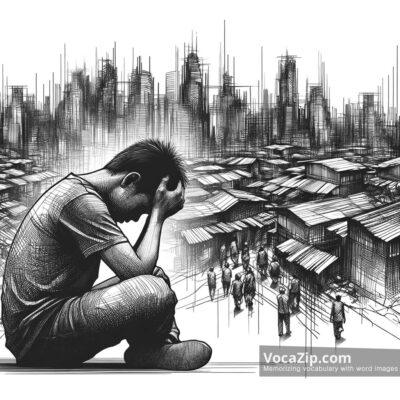distraught meaning
distraught :
very upset, very worried
adjective
▪ She was distraught after losing her keys.
▪ She was very upset after losing her keys.
▪ He looked distraught when he heard the news.
▪ He looked very worried when he heard the news.
paraphrasing
▪ distressed – very upset
▪ anxious – very worried
▪ troubled – having problems
▪ agitated – very nervous

Pronunciation
distraught [dɪˈstrɔːt]
The stress is on 'traught' and sounds like 'di-strawt'.
Common phrases and grammar about distraught
distraught - Common meaning
adjective
very upset, very worried
Part of Speech Changes for "distraught"
▪ distraughtness (noun) – state of being very upset or worried
Common Expressions with "distraught"
▪ look distraught – appear very upset
▪ feel distraught – be very worried
▪ become distraught – get very upset
▪ sound distraught – speak in a worried way
Important examples of distraught in TOEIC
Vocabulary examples from the TOEIC test
In TOEIC vocabulary questions, distraught is used to describe someone who is extremely upset.
Example of a confusing word: distracted (unable to concentrate)
Grammar examples from the TOEIC test
As an adjective, distraught describes a person's emotional state and often appears in questions asking for synonyms.
distraught
Idioms and fixed expressions in TOEIC
distraught with worry
means 'extremely worried', used to describe someone deeply concerned.
beside oneself with grief
means 'overwhelmed by sadness', used to describe extreme emotional distress.
Differences between similar words and distraught
distraught
,
distressed
differences
Distraught is a stronger emotion than distressed, which means upset but not as intensely.
distraught
,
anxious
differences
Distraught is more about being upset, while anxious is more about being worried or nervous.
Words with the same origin as distraught
The origin of distraught
The word's etymology is not clear.
Word structure
The analysis of the word's composition is unclear.
Words with the same origin
The word's root is unclear or difficult to confirm.
Please select an image in the quiz
Previous post and next post


distraught
1286
very upset, very worried
adjective ┃
Views 2






